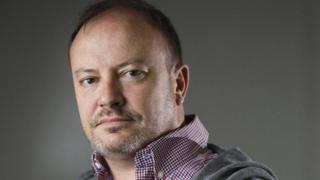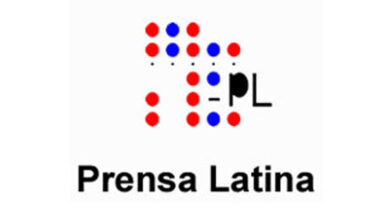The gaming boss who gets addicted to the games
 Image copyright Sara Lando
Image copyright Sara Lando The BBC’s weekly The Boss series profiles different business leaders from around the world. This week we speak to Andrew Day, chief executive of computer games developer Keywords Studios.
Andrew Day knows from personal experience just how addictive some computer games can be.
«I have one of those horrible personalities, that if I open a game, I find, before I know where I am, that I have spent tens of hours on it,» says the 56-year-old.
«Back in 2013… I went for a little break, I was lying beside a swimming pool with nothing to do. So I picked up my phone and started playing Candy Crush.
«That was in June. I had to give it up in my New Year’s resolutions the following year, because I was just losing so much time on the game. So yes, I have to be a little bit careful.»
Andrew is chief executive of Irish company Keywords Studios. Even if you are an avid gamer, you might not have heard of the Dublin-based firm.
However, the business has helped make many of the world’s most popular games – from Call of Duty, to World of Warcraft, Fortnite, Clash of Clans, League of Legends, Assassin’s Creed, and the aforementioned Candy Crush.
«The full list of games we have worked on is slightly infinite,» says Andrew.
Keywords employs 7,500 people at 59 offices around the world, from Montreal to Tokyo, and in 2019 it had annual revenues of €326.5m ($369m; £295m).
The business remains under the radar because it doesn’t release games under its own name. Instead it is employed by the world’s largest gaming companies to help them make their products.
It does everything from produce whole games, to parts of them, or handling the transfer from one platform to another, such as making an Xbox game work on a PlayStation.
Or it will design and make all the visual aspects of a game, everything you see, such as the characters, the buildings and weapons. «All of those are digital assets, and they get produced by artists, and we are the largest providers of video games art in the world,» says Andrew.
In addition, Keywords offers a testing service for nearly completed games, to check that they work correctly. And it has an audio business whereby actors – famous or not so famous – provide a game’s voices and dialogue, and it adds all the music and sound effects.
Further, the company is the world’s largest provider of games translation services – converting games into 50-plus languages.
Then after a game has been released, Keywords has staff who offer customer support under a client’s name. So if you phone a gaming company demanding help to get you to the next level, you may actually be put through to Keywords employees.
It is a big operation for Andrew to lead, and while coronavirus has temporarily clipped his wings, he typically spends «half my time» travelling around the world.
It is a far cry from Keywords’ humble beginnings in 1998, when a friend of Andrew’s, Giorgio Guastalla, set up a small firm in Dublin offering translation services to business software providers. It grew slowly until Andrew was asked to join and lead the company in 2009, by which time it was solely operating in the gaming sector.
«He had been asking me for a number of years, he thought I could really grow and make something of the business,» says Andrew. «At the time it was just 50 people in an office in Dublin.»
Andrew was born and raised in South Africa. He and his family moved to the UK when he was 16, settling close to London. After gaining a management degree from Bradford University, he then had a varied career in business.
He started working for cigarette firm Rothmans, before moving into mergers and acquisitions in a number of industries, and then finally specialising in the technology sphere.
Andrew’s plan for Keywords was big expansion, helped by using his knowledge of organising takeovers to buy firms, which would allow the business to expand the services it could offer gaming companies. His joining the business also happily coincided with the huge growth in popularity of computer games over the last decade.
To accelerate its growth and acquisitions, in 2013 Andrew floated Keywords on the London Stock Exchange’s AIM market, which raised some £30m.
«It has been a rare example of spotting an opportunity, having that vision, then creating a business plan and following it religiously,» says Andrew.
Technology sector analyst Patrick O’Donnell of Irish stockbrokerage Goodbody, says, «Andrew Day has been critical for Keywords.
«Keywords has completed over 40 acquisitions under Andrew’s leadership, and is now clients to 23 of the top 25 global video gaming publishers, and all top 10 mobile game developers,» he says.
More The Boss features:
These companies all use Keywords because it is cheaper and more convenient for them to give it work to do it rather than employ vastly more staff in-house. «We get projects to do,» says Andrew. «So if the gaming firms did this work in-house, at the end of a certain project they could have staff just sitting around.»
Andrew says that Keywords has no plans to ever release its own games, or as he puts it, «bite the hands that feed it». Instead he thinks the firm will grow to see annual sales of €1bn, such is the growing demand for its services, from a gaming industry with total revenues of more than $159bn (£127bn) per year.
He is, however, still wary of playing the games himself. «I find it hard to put a game down. I want to complete it, to move to the next level. Or if I’m playing the same level over and over again I want to do it faster, or jump higher, or catch more coins. It appeals to my personality rather sadly.»


